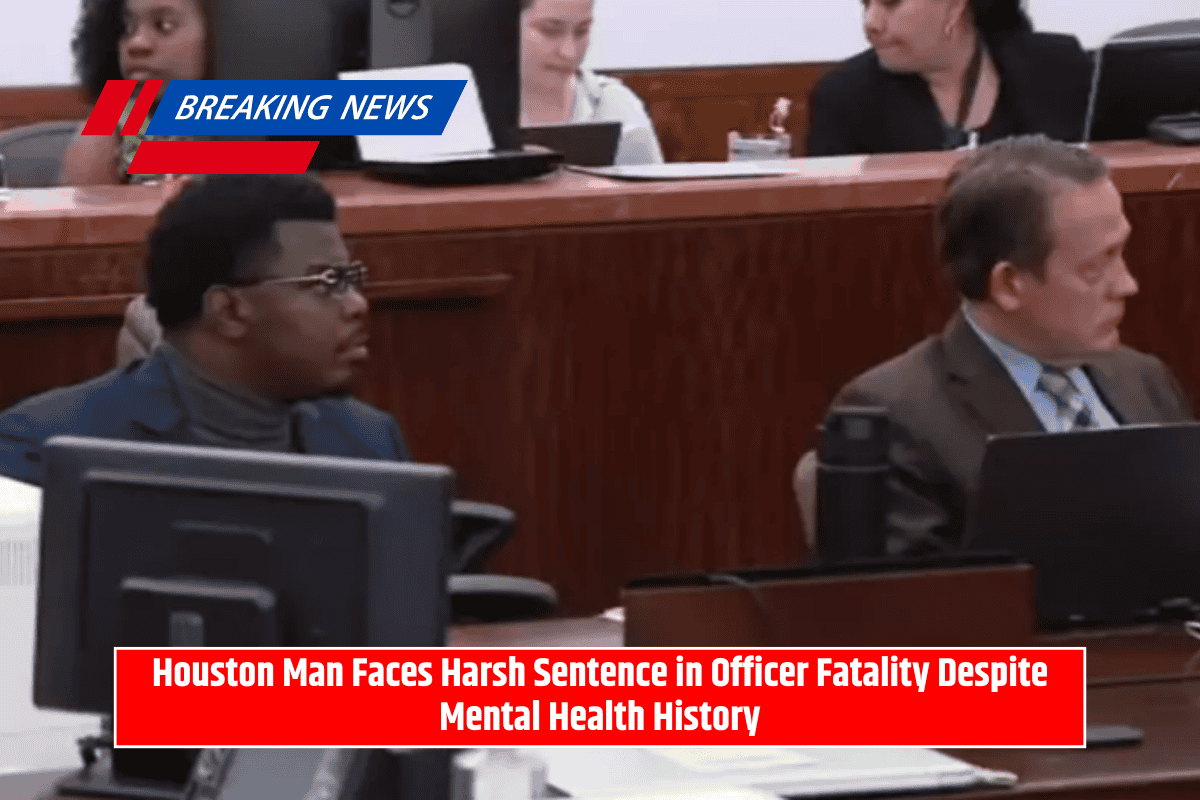The family of Tavores Henderson, a 26-year-old man convicted in connection with the 2019 death of Nassau Bay police sergeant Kaila Sullivan, says the tragedy could have been avoided if their son had received proper mental health care.
Henderson, who has lived with schizophrenia since childhood, was sentenced to 58 years in prison after a jury convicted him of aggravated assault on a public servant on September 4, 2025.
Conviction and Sentencing
Henderson was originally charged with capital murder, but jurors chose the lesser charge after hearing days of testimony. Judge Melissa Morris handed down the sentence on September 10.
Defense request: 10 years
Prosecutors’ request: life in prison
Final sentence: 58 years
Under Texas law, Henderson will have to serve half of his sentence—around 29 years—before being eligible for parole, with credit for the six years he has already spent in jail.
How the Tragedy Unfolded
Prosecutors said the incident began when Officer Clint Brown pulled Henderson over for running a stop sign in Nassau Bay. A warrant check revealed Henderson had a misdemeanor domestic violence charge. As Brown tried to detain him, Henderson broke free, reentered his Jeep with a handcuff still attached, and attempted to flee.
Sergeant Kaila Sullivan tried to climb into the passenger side of the vehicle. Henderson sped off, and Sullivan fell from the open door, where she was run over. She later died at a hospital.
Mental Health History and Family Concerns
Henderson’s family argues that systemic failures in Texas’ mental health system contributed to the tragedy.
Diagnosed with schizoaffective disorder and intermittent explosive disorder from a young age.
Released from a Houston hospital psychiatric hold the same day of the accident, despite his mother’s pleas.
Prescribed inpatient medication, but a pharmacist refused to release it for home use.
Family members believe that if Henderson had remained hospitalized, Sgt. Sullivan’s death could have been prevented.
Defense Strategy and Jury Decision
Henderson’s attorney, David Rushing, focused on challenging the idea that Henderson acted “intentionally or knowingly.” He did not call witnesses during the guilt phase, citing strategy.
Rushing acknowledged the tragedy, saying:
“At the end of the day, there was no intention to kill Officer Sullivan. It was a horrific accident.”
The jury ultimately rejected capital murder, settling on aggravated assault, which requires proof of recklessness.
Mental Illness in the Jail System
Advocates, including Krish Gundu of the Texas Jail Project, highlighted Henderson’s case as an example of how Texas often jails people in mental health crises instead of treating them.
About 78% of Harris County Jail inmates have a mental health indicator.
Roughly 26% are on psychotropic medication.
Similar cases show how mental illness and the justice system often clash. In another high-profile case, a schizophrenic Tomball woman who killed her child was recently found not guilty by reason of insanity.
Family’s Position and Next Steps
Henderson’s mother, Tiffany Henderson, testified during sentencing about her son’s struggles and pleaded for understanding. She has previously faced charges for hiding him after the incident.
The defense has already filed a notice of appeal, though Rushing said he will not continue representing Henderson. He expressed disappointment in the length of the sentence but relief that Henderson avoided a capital murder conviction.
The sentencing of Tavores Henderson underscores the devastating intersection of mental illness, law enforcement, and systemic failures in healthcare. While Henderson will likely spend decades in prison, his family and advocates argue that better psychiatric intervention could have prevented Sgt.
Sullivan’s death altogether. For now, Henderson begins a long sentence, while broader questions about mental health treatment in Texas remain unanswered.
